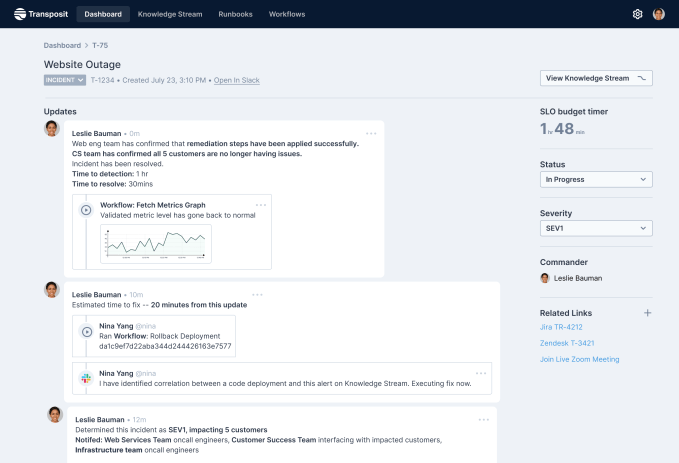Caregivers, both paid and unpaid, have been in the spotlight this year as one of the key categories of front-line workers helping cope with the coronavirus pandemic. On one hand, they have been in great need, especially as the infection seemed to hit hardest with the elderly people and infirm people who they help. On the other, they have been regularly found to be overlooked when it comes to having adequate personal protection (such as masks) and other resources to cope with their work.
There are signs, though, that thinking about and catering to caregivers are both changing for the better. Today, Carewell, which provides a marketplace for caregivers to purchase vetted supplies at competitive prices, is announcing a seed round of funding from a key list of investors and is embarks on its earliest stage of growth.
The startup has picked up just over $5 million from e.ventures — the VC that originally started out as BV Ventures, the strategic VC arm of publishing giant Bertelsmann — along with NextView Ventures; and Primetime Partners, the firm co-founded by VC legend Alan Patricof (who founded the predecessor to Apax and then founded Greycroft) and Abby Levy. Others in the round included Chewy.com’s former VP of growth marketing, Jason Klinghoffer, and Dia&Co founders, Nadia Boujarwah and Lydia Gilbert.
Primetime itself is an interesting firm: it was founded by the pair specifically to find and invest in startups building services to address the needs of older people, which, like caregivers, are another very overlooked group when it comes to a lot of new services.
Carewell is based out of Charlotte, North Carolina, itself notable at a time when so many are moving out of bigger tech hubs amid all of the other shifts we’ve gone through in the pandemic. It was co-founded by Bianca Padilla and Jonathan Magolnick, who say they launched the company after Padilla found herself in the role of informal family caregiver.
Informal caregivers is a group separate from those who are professional caregivers, with one of the key differentiators being that the former are unpaid. It’s estimated that there are some 53 million unpaid family caregivers in the U.S., working out to some 20% of the population, with numbers on the rise, but as Padilla found out, even with these big numbers, there were precious few resources available to her to figure out best practices; and as an individual (not a nursing home, not a hospital, not an agency) there weren’t really places she could go online to buy supplies that she could trust to be good brands and good value.
And that’s how, in 2015, Carewell was born.
The company looks to be more than just a marketplace (which might be one reason why e.ventures and Levy of Primetime, both with roots in publishing, were interested).
In addition to selling hygiene, home and personal care, meal and other products, it also provides a series of guides intended to give information and advice to informal caregivers. They include subjects like getting around Medicare, dealing with mealtimes if someone has dementia, profiles of caregivers in the wider community, exercise ideas and more.
“Now, more than ever, family members are challenged with providing in-home care for their chronically ill, disabled, or aging loved ones,” said Padilla, who is Carewell’s CEO, in a statement. “Our mission is to improve the lives of these selfless individuals and help them provide better care. We are more than an e-commerce company. We are here to support, educate, and advocate for the long-overlooked caregiving community.”
The company does not disclose much on its metrics so far, except to note that it’s had a predictable boost in business since the arrival of the pandemic. That makes sense: many worked to get their family members out of care homes if they could to avoid catching the virus at a time when the infection seemed to be ravaging those facilities. And in general movement became much more restricted, so people were stepping up to help older and infirm family members more than before.
Carewell said that as a result, its revenues doubled in the first month of the pandemic, and since February 2020, some 40,000 people have purchased products on the site.
Although some of that might be circumstances-based, the bigger trends in healthcare and aging seem to point to more, not less, caregivers needing advice and supplies, and so that points to an interesting business opportunity for startups like this one.
“Five years ago, Bianca and Jonathan saw a need in the market, and that need is even more prominent today,” said David Beisel, a partner at NextView Ventures. “As the home care industry undergoes a rapid transformation and the number of unpaid family caregivers continues to climb, Carewell’s supplies, services, and support are of critical importance–and we see a tremendous opportunity for growth.” Beisel is becoming a board observer with this round.
“Carewell is poised to become a national brand and top-level leader in the home care market,” said Mathias Schilling, co-founder and managing partner of e.ventures. “Through an empathetic approach and authentic customer engagement, they’ve formed a strong community and laid a solid foundation built on trust. We’re thrilled to support the Carewell team in expanding their impact and improving the everyday lives of an even greater number of caregivers.” Schilling is joining the board.
The pandemic has wreaked a lot of economic and social havoc around the world, but one small silver lining has been that it’s given space and time for people to rethink how to rebuild things in a better way. Funding and seeing the growth of e-commerce sites that address groups of people who have not been considered all that valuable in the past — in this case the elderly and their unpaid caregivers — is one positive development in that regard.






